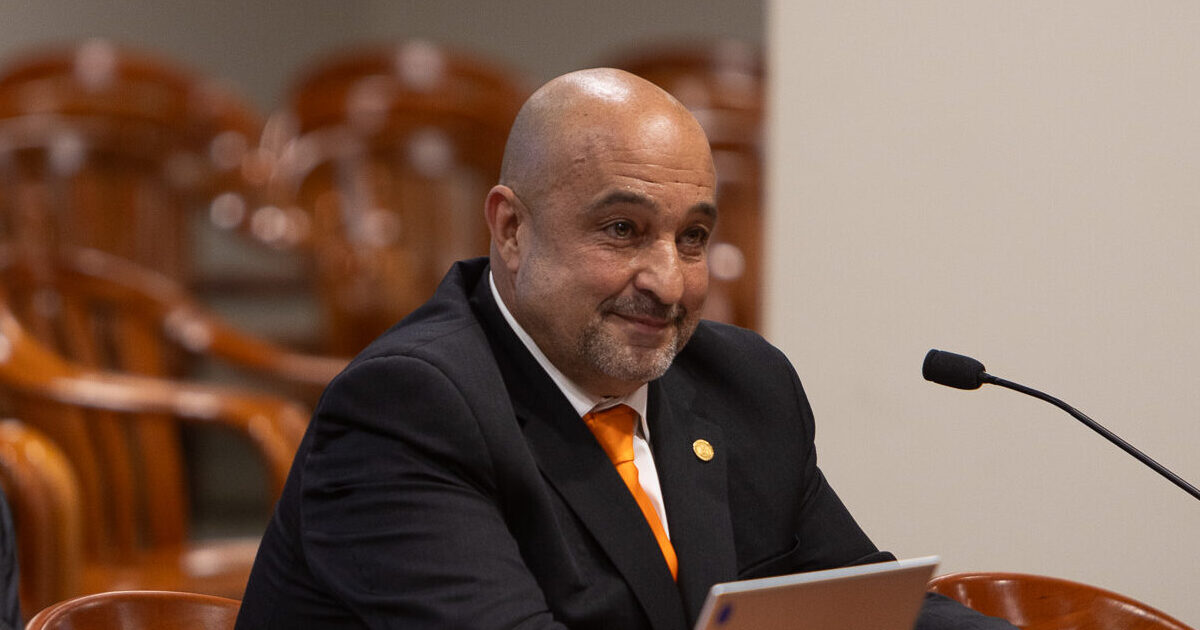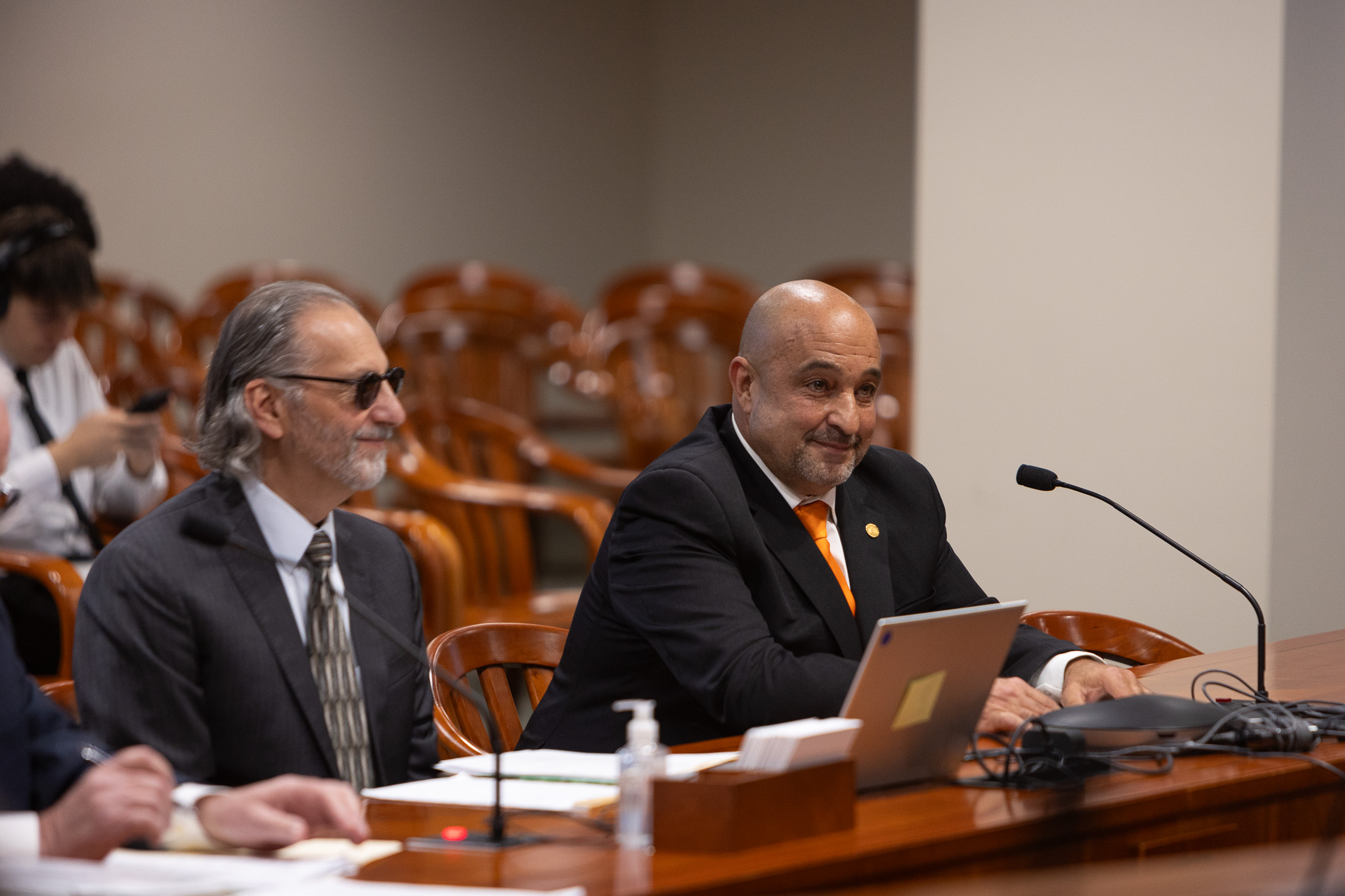House passes legislation to increase penalties for deed fraud
State Rep. Tullio Liberati (D-Allen Park) testifies in the House Committee on Local Government and Municipal Finance on House Bills 5598-99 on May 15, 2024, in the Anderson House Office Building in Lansing.
LANSING, Mich., June 13, 2024 — Two bills that would increase penalties for those who intentionally file fraudulent documents with the intent to defraud property owners passed the Michigan House of Representatives today. Current law prohibits putting fraudulent real estate documents on an official record. A violation is punishable by up to three years in prison and/or up to a $5,000 fine.
“For such a serious crime, the punishment is outrageously light. As technology improves, it is more and more likely that these types of crimes will become more frequent unless we do something about it,” said state Rep. Tullio Liberati (D-Allen Park). “It’s time that we updated our laws to reflect the realities of the 21st century, as well as make the punishment more severe to deter people from committing deed fraud.”
House Bill 5598, sponsored by Liberati, prohibits someone from knowingly and intentionally drafting or submitting a document to a county register of deeds with the intent to defraud a property owner. Its companion bill, HB 5599, also sponsored by Liberati, updates the sentencing guidelines to incorporate the new 10-year felony created in HB 5598.
There have been cases from across the country where criminals have used deed fraud to steal people’s land. One notable case from Connecticut involved a person unknowingly bought land from a fraudster and started to build up on the land, only to learn that they didn’t really own the land, losing out on hundreds of thousands of dollars.
“While seniors are especially targeted by deed fraud, it can happen to anyone. There can be multiple victims, from the person who lost their property to people that unknowingly bought stolen land. This type of fraud must be stopped, and I applaud the House’s commitment to deterring this type of theft,” Liberati concluded.
With the passage of these bills in the House, they now move over to the Senate for consideration.
###


